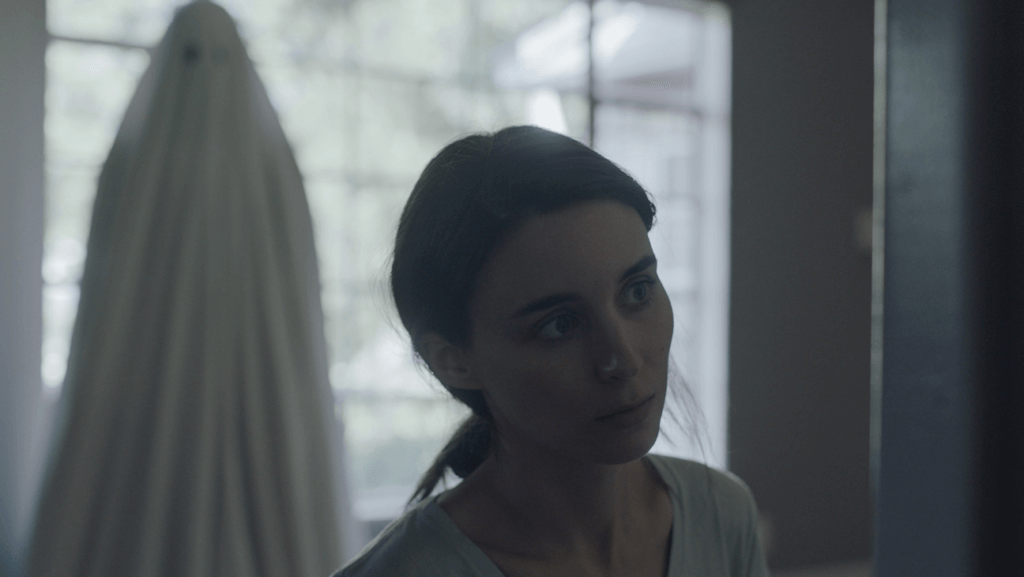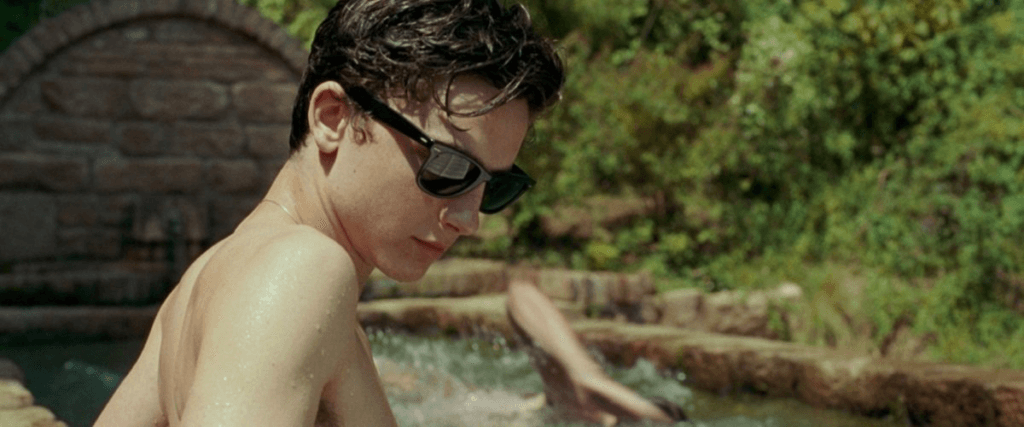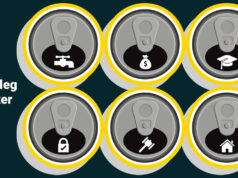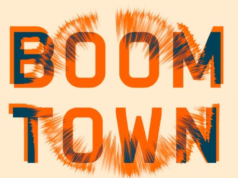The Oklahoma Film Critic Circle, a statewide group of film critics of which I am a proud member, awarded Get Out top honors as the year’s best film. Respectfully, I disagree, and find Get Out, while funny and smart, too adherent to its Stepford Wives structure to be genuinely original or scary. It’s no Candyman, one of the scariest and most unsettling films I’ve seen.
But, Get Out, a cultural phenomenon, deserves our attention. It represents something larger, a moment where audiences are discussing the history of race and gender behind and in front of the camera. It was a messy year.
Sex scandals rock Hollywood
2017 proved monumental for film history. Sex scandals rocked Hollywood and the entertainment industry in a way not seen since the 1920s. Years from now, it’ll be impossible to separate discussion on 2017’s best films from the #MeToo Moment.
In the 1920s, it was rape and murder allegations against respected comedian Fatty Arbuckle, “Hollywood’s first million-dollar star.” In 2017, it was sexual misconduct allegations against everyone from comedians (Louis CK and Bill Cosby) to screenwriters (James Toback) and major studio executives (Harvey Weinsten).
Since Weinstein, 49 men in powerful positions have resigned from respected careers on accusations ranging from rape to sexual harassment, 29 on suspension, nearly all offering apologies and facing the public’s ire.
Cultural moment affords opportunity to reflect
In Oklahoma City, as old movie houses come back to life and new independent arthouse cinemas open, this cultural moment might be the time for local moviegoers to rethink and revisit film history, to question how we got here.
With all the critical praise Get Out’s receiving, we could screen the 2017 documentary Dawson City. Here, we learn the role cotton played, when mixed with certain chemicals, in the invention of celluloid film. That’s in 1848 during the era of the cotton gin and at the height of American slavery.
We could screen 1968’s Night of the Living Dead as one of the first zombie movies and independent films. We’d see horror, race, and allegory have gone hand-in-hand for at least 50 years.
Or, with all the recent attention on the absence of women filmmakers and female producers—and, on Greta Gerwig for directing the critically acclaimed Lady Bird—we could revisit the movies of Lois Weber and Alice Guy Blache, the first filmmakers to tell narrative stories on celluloid film.
We have with this moment an opportunity to retell the history of one of the most influential media ever made, to tell a story that acknowledges the role women, people of color and minorities have long-played in film.
The following films from 2017 are worthy of that history:
10. A Ghost Story

A well-shot meditation on love, loss and death, A Ghost Story hurts. The ghost of a recently deceased man (Casey Affleck) returns home to reunite with his heartbroken wife (Rooney Mara). Hidden under a sheet, Affleck’s character watches his wife grieve, mourn and move on. Untethered to time and unable to communicate, his ghost remains in the couple’s home, waiting and watching.
David Lowery’s film may seem straightforward, but its quiet, beautifully composed images leave us contemplating the meaning of life. The movie’s haunting long after its final moments.
9. Good Time

Good Time’s opening scene is a sucker punch, an uncomfortable back-and-forth between an intellectually disabled Nick (played by co-director Benny Safdie) and his psychologist. Their exchange sets the film’s tone, especially when Nick’s brother, Connie (Robert Pattinson), rushes into the room and abruptly ends Nick’s therapy session in the name of protecting him.
Things only go downhill from there for the two brothers as they plan a bank heist. To say more ruins how directors Benny and Josh Safdie deliver Good Time’s surprises.
As the scheming Connie, Pattinson turns in a performance so frenetic, so complex, so devastating, he deserves any and all recognition as one of 2017’s best actors.
8. My Friend Dahmer

My Friend Dahmer, the story of a young Jeffrey Dahmer in high school, is tense and uncomfortable, horrifying and smart. Watching actor Ross Lynch bring an awkward young Dahmer to life on screen is unsettling and insightful. His performance, one of the year’s best, asks audiences not to excuse Dahmer but understand how a serial killer comes to exist.
An aesthetic blend of Gus Van Sant’s Columbine-inspired Elephant and Stephen Chobsky’s film adaptation of his young adult novel Perks of Being a Wallflower, My Friend Dahmer is also visually alluring, creepy in all the right ways.
7. Oklahoma City

Powerful and troubling, Oklahoma City is the investigative story of the Alfred P. Murrah Federal Building bombing. Well-researched and engaging, PBS’s American Experience documentary avoids sentimentality and conspiracy, offering a nuanced examination of events leading to one of the worst acts of domestic terrorism in United States history.
At its heart, the film’s about the bombing’s complicated backstory, its presentation never boring. Ruby Ridge and Waco, religious liberty and white supremacy, gun rights and anti-federal government paranoia all take center stage in Oklahoma City. Buried here are the seeds of present-day discontent and political disagreements.
Just as important, the documentary interviews survivors and first responders, doctors and police, parents who remember digging through rubble looking for their children.
6. Blade Runner 2049

Director Denis Villeneuve’s sequel to the highly influential sci-fi classic, Blade Runner, is stunning to see. Its images are immersive, unique, colorful, mythological, full of meaning. I love it, and I sing its praises as someone who respects the original film but never found it particularly exciting or absorbing.
A film about a robot cop (Ryan Gosling) who hunts other artificial humans, Blade Runner 2049 is worthy of its predecessor but brave enough to tell its own story, smart enough to ask its own philosophical questions about technology, society, and existence.
5. Twin Peaks: The Return

An aural and visual love letter to television and film, David Lynch’s third season of Twin Peaks is sublime.
Lynch’s “18-hour film” offers moving images as poetry, sound as metaphor, story as allegory—precisely the promise of cinema—which is why the NYC Museum of Modern Art is screening it in its entirety next month as part of its Contenders Series honoring the best films of the year.
The first two episodes premiered at the Cannes Film Festival, where a teary-eyed Lynch received a five-minute standing ovation, rightfully so.
Episode eight — with its atomic bomb explosion sequence and visual references to experimental filmmaker Stan Brakhage — stands out, however, as an exceptional moment in film and television history, arguably revolutionary.
4. Logan

Logan is surprising, considering the superhero genre has become a stale reminder of every hero’s journey ever told, each new DC or Marvel movie ripped from Gilgamesh and the ancient Greeks, pale comparisons of earlier blockbusters and 20th century western films.
Director James Mangold’s Logan doesn’t reinvent the wheel, but it adds a realism and humanity missing in films like The Avengers.
Film historians should note the representation of violence and masculinity in the R-rated Logan, a movie about a downtrodden, unfeeling middle-aged man in America struggling to make sense of himself and society in a civilization obsessed with casinos and comic books.
3. I, Tonya

Margot Robbie loses herself as Olympic figure skater Tonya Harding, humanizing a long-running pop culture joke into a recognizable young woman. Redneck and talented, mentally and physically abused by her mother (Allison Janney) and husband (Sebastian Stan), betrayed by a delusional bodyguard, undone by a headline-obsessed mass media, Tonya’s a white working-class embodiment of our #MeToo moment.
I, Tonya’s funny and informative, equally fascinating when director Craig Gillespie focuses on Harding’s figure skating accomplishments, his images riveting.
Think Drop Dead Gorgeous meets Goodfellas and Gummo on ice.
2. The Florida Project

My jaw dropped during the film’s gut-punching final scene.
The Florida Project’s about a 6-year-old girl (Brooklynn Prince) growing up with her wayward mother (Bria Vinaite) in a cheap motel along Highway 192 in Kissimmee, Florida, a major tourist strip outside Disney World.
Director Sean Baker describes his movie as, “the juxtaposition of having kids growing up in motels right outside ‘the happiest place on earth.’” It’s about reality, about the 78 percent of Americans living paycheck to paycheck, the 39 percent with no savings, the people who call motels “home.”
Told mostly from the perspective of its charismatic young protagonist and her rowdy friends, the film’s funny, moving, and visually captivating.
That Baker snuck into Disney World to film one of the movie’s most breathtaking moments is audacious, a middle finger to a multi-national corporation and tourist industry seemingly content with not paying its low-wage workers a living wage.
It’s a welcome breath of fresh air.
1. Call Me by Your Name

Lush and heartbreaking, Call Me by Your Name is a poignant, well-acted coming-of-age story (trailer at top of article).
In 1983 northern Italy, when same-sex relationships were illegal, a 17-year-old, precocious Elio (Timothée Chalamet) falls in love with 24-year-old Oliver (Armie Hammer). Their summer love, set to a soul-stirring score and mesmerizing images, is complicated, full of missed glances and yearning, longing and repression, conversations about music, art, and history.
With 2016’s Oscar-winning Moonlight, Call Me by Your Name represents a renaissance in storytelling about LGBT characters, an era not seen since the New Queer Cinema films of the early 90s.
Honorable mentions (alphabetically)
- Coco
- The Disaster Artist
- Get Out
- Icarus
- Kedi
- Lady Bird
- Leatherface
- Mudbound
- Personal Shopper
- Raw
Most disappointing films (alphabetically)
- Alien: Covenant
- Baby Driver
- Cult of Chucky
- Fate of the Furious
- First They Killed My Father
- The Great Wall
- It Comes At Night
- Jeepers Creepers 3
- Killing of a Sacred Deer
- The Mummy
- Pirates of the Caribbean: Dead Men Tell No Tales
- The Post
- Roman J. Israel, Esq.
- The Snowman
- Split
- Star Wars: The Last Jedi
- Wonder Woman
- Wonderstruck






















